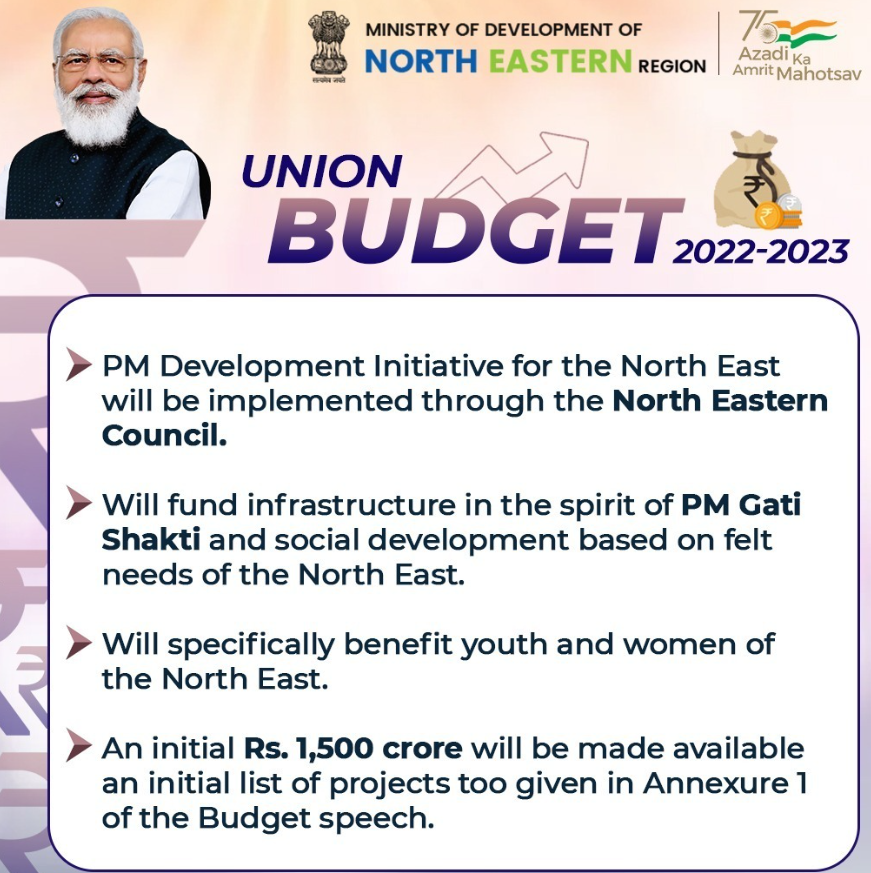6 December 2024 : PIB Summary For UPSC
1. North-East Region Development
(Source – https://pib.gov.in/PressReleseDetail.aspx?PRID=2081098®=3&lang=1 )
| Context |
|

PM-DevINE Scheme Overview
- Announced in the Union Budget 2022-23 as a Central Sector Scheme with 100% Central funding.
- Initial outlay of ₹1,500 crore, later increased to ₹6,600 crore for FY 2022-23 to FY 2025-26.
- Objectives:
- Funds infrastructure projects aligned with PM Gati Shakti.
- Supports social development initiatives based on the needs of the North East Region (NER).
- Promotes livelihood activities for youth and women.
- Addresses development gaps in various sectors.
- Progress:
- 35 projects worth ₹4,857.11 crore sanctioned as of November 2024.
Industrialization Initiatives in NER
- North East Industrial Development Scheme (NEIDS):
- Launched in 2017 and ended on March 31, 2022.
- Aims at promoting industrialization in NER.
- Uttar Poorva Transformative Industrialization Scheme (UNNATI) Scheme:
- Launched on March 9, 2024.
- Focuses on enhancing infrastructure, employment, and regional prosperity.
- Incentives provided:
- Capital Investment Incentive.
- Capital Interest Subvention.
- Manufacturing & Services Linked Incentive.
Budgetary Allocation for NER Development
- Non-exempt Union Ministries/Departments are required to allocate 10% of their Gross Budgetary Allocation for NER.
- Provisional expenditure of ₹3,53,412 crore incurred between 2019-20 and 2023-24.
| PYQ: Cross-border movement of insurgents is only one of the several security challenges facing the policing of the border in North-East India. Examine the various challenges currently emanating across the India-Myanmar border. Also, discuss the steps to counter the challenges. (250 words/15m) (UPSC CSE (M) GS-3 2019) |
| Practice Question: Discuss the role of schemes like PM-DevINE and UNNATI in addressing developmental challenges in the Northeast Region. How do such initiatives contribute to regional industrialization and socio-economic growth? (250 Words /15 marks) |
2. Status Of The Advancement Of Super Computing In India
(Source – https://pib.gov.in/PressReleseDetail.aspx?PRID=2081061®=3&lang=1 )
| Context |
|
National Supercomputing Mission (NSM)
- Jointly implemented by the Department of Science and Technology (DST) and Ministry of Electronics and Information Technology.
- Achievements:
- 33 supercomputers with a total capacity of 32 PetaFlops established at 24 locations nationwide.
- Institutions housing supercomputers include IITs (e.g., Gandhinagar, Goa, Kanpur, Madras), IISc, NIT Trichy, and others.
- ₹1,874 crore allocated/utilized for infrastructure, R&D, applications, HRD, and mission management.
- Expansion plan includes adding 20 PetaFlop systems to select institutions.
- Human Resource Development:
- Over 20,000 individuals trained through five training centers located in Pune, Kharagpur, Chennai, Palakkad, and Goa.
National Quantum Mission (NQM)
- Objectives:
- Develop intermediate-scale quantum computers with 50–1,000 physical qubits within 8 years.
- Platforms include superconducting and photonic technologies.
- Key Initiatives:
- Four Thematic Hubs (T-Hubs) established for technology, HRD, entrepreneurship, and international collaboration in quantum computing.
National Mission on Interdisciplinary Cyber-Physical Systems (NM-ICPS)
- 25 Technology Innovation Hubs (TIHs) established in advanced technology verticals, including quantum computing.
Significance
- Enhances India’s capabilities in supercomputing, quantum technology, and cyber-physical systems.
- Boosts R&D, innovation, and global collaborations while creating a skilled workforce.
| Practice Question: Examine the role of initiatives like NSM, NQM, and NM-ICPS in strengthening India’s technological capabilities. How do these missions contribute to research, innovation, and human resource development in advanced technology domains? (150 Words /10 marks) |


